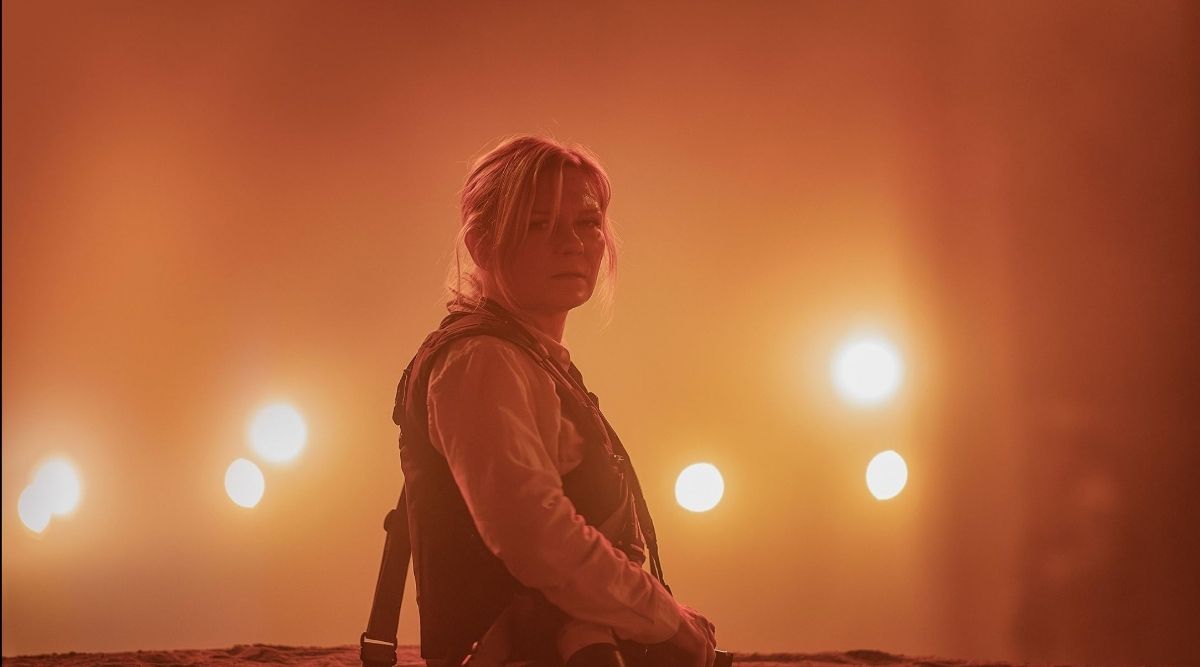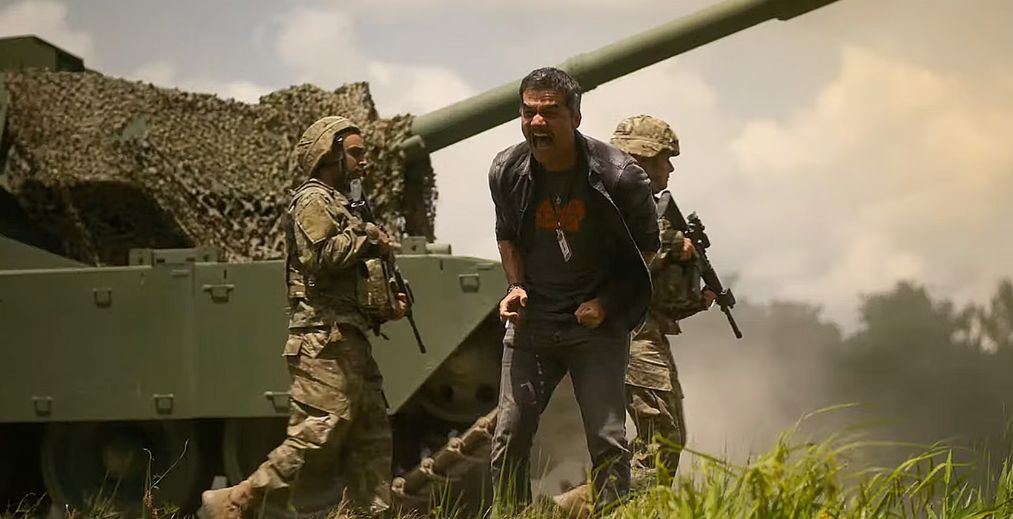Photojournalism hinges on avoiding one essential fallacy: photographs are objective. No still image or video can be purely objective. The act of recording anything at all imbues a photograph with subjectivity. Every factor the photography contributes, from the frame and the lens to the exposure to the subject itself, biases the image. Even the most skilled photographer cannot possibly create objective photography.
Any photojournalist worth their salt has to start an assignment from the perspective that while they are not the subject, they are still part of the subject. Alex Garland’s Civil War may think it’s removed its own biases from this story about war photographers in a time of real-life political crises. But its pompous insistence that the movie is apolitical only further betrays its biases.
Civil War is a phenomenal movie-going experience if you ignore the plot and dialogue. The visuals are excellent. The sound is phenomenal, especially in IMAX. And the way it builds tension is quite impressive. But Civil War fundamentally betrays its own premise with its unbearably on-the-nose and self-serious script. Purposefully and perhaps smartly, we never learn why a civil war has erupted in the United States. It’s never clear who are the “good guys” or who are the “bad guys.” The politics of the various factions aren’t even vague; they’re barely described at all.
Texas and California are allied against a federal government in Washington D.C. that is also warring against a Florida Alliance. Yet the President is played by notoriously Libertarian-coded character actor Nick Offerman. The dirty white man of unclear loyalty (Jesse Plemons) massacring people at random is racist, but he’s also very well-educated. The separatist sniper the main characters encounter has rainbow-dyed hair and painted fingernails. The viewer is never meant to understand what people are fighting over in Civil War, much less what they believe in.
But it’s so clear what Alex Garland believes. He believes that bigotry is appalling. He believes that people of all politics are capable of great evil and that politicians are self-serving imbeciles. As for war photography itself, it seems clear that Garland considers them totally flawed for their requirement not to help people in clear need. Even more so, he believes their entire profession to be useless. Civil War’s completely nihilistic conclusion belies a creator who sees no hope for a future without war. The sacrifices Garland’s characters make are regarded as futile, if not absurd.

Whether he’s right or wrong is an interesting question and part of what makes Civil War such an interesting text. However, it’s quite difficult to abide by its unexamined irony. Civil War falls for the fundamental fallacy. It believes it can be apolitical and objective. But it can’t be, and it certainly is not. Every time the movie lingers on a wide shot of a pit of dead bodies or freezes on a photograph one of its characters takes, the movie pushes the audience to feel shocked and appalled. Even just characterizing the President as a fool or Lee as cold and distant implies Garland believes these traits are inherent in these types of people.
The problem with Civil War is not that Garland has opinions. It’s that he’s clearly inserting them but trying so hard to mask it. You can’t have both. Either create intentionally subjective art that provokes through a clear perspective or do what photojournalists do. Remove yourself from the frame altogether, and keep your tongue out of your cheek while you do it. But Civil War as it exists can’t do that. It’s a movie about journalists. It’s about human beings who aren’t just taking pictures throughout the whole movie. They feel and fear and live whole lives.
In fact, so many of the pictures that the young journalist Jessie (Cailee Spaeny) takes, in particular, are of her journalist hero Lee (Kirsten Dunst). While they may be co-leads of the movie, Jessie turns Lee into a subject. The audience is made to interrogate who Lee is as a person and a professional. Understanding what makes her keep doing this work despite its self-purported futility is what drives much of the first two-thirds of the movie. It’s also why the final act feels so distinct.

For the entire final chapter of Civil War, as the crew follows soldiers through the streets of D.C., the journalists finally cease to be the movie’s subject. The subject switches to the battle and the President. This portion of the movie perfectly captures the spirit of photojournalism, down to some of the final shots we watch Jessie take. It’s the ideal level of near-objectivity the rest of the movie simply can’t contain while focusing on its characters. The President’s final, feckless line and the journalist Joel’s (Wagner Moura) reaction embody this perfectly. He doesn’t fish. He doesn’t editorialize. We all just witness and capture the moment for what it is.
The last act of Civil War proves that a movie like this can abide by the standards of photojournalism. But Alex Garland is too opinionated on war and politics and journalism to pull that off for the whole movie. And frankly, it’s unclear whether an entire movie designed like the final act would even work. Because photography requires context. It requires editorializing and talented writers who interpret the moment so viewers understand what they see.
Civil War has a lot to say. It perhaps should have just said it instead of trying so hard to appear unbiased. It would have strengthened the script and made some of its most on-the-nose moments feel sincere instead of mere parts of a calculated attempt at appearing apolitical.
Civil War is in theaters now.





